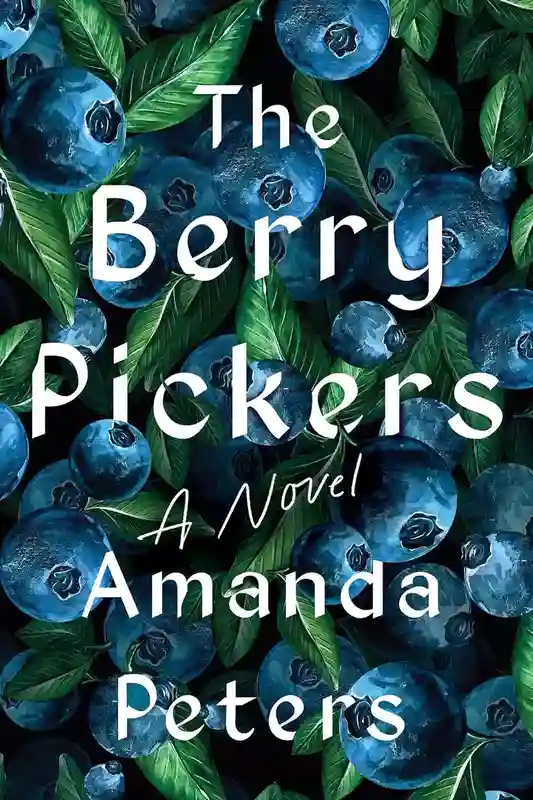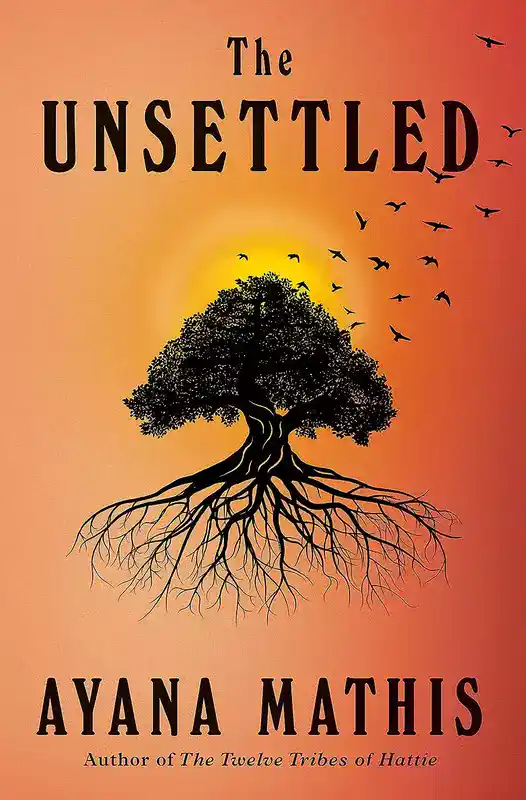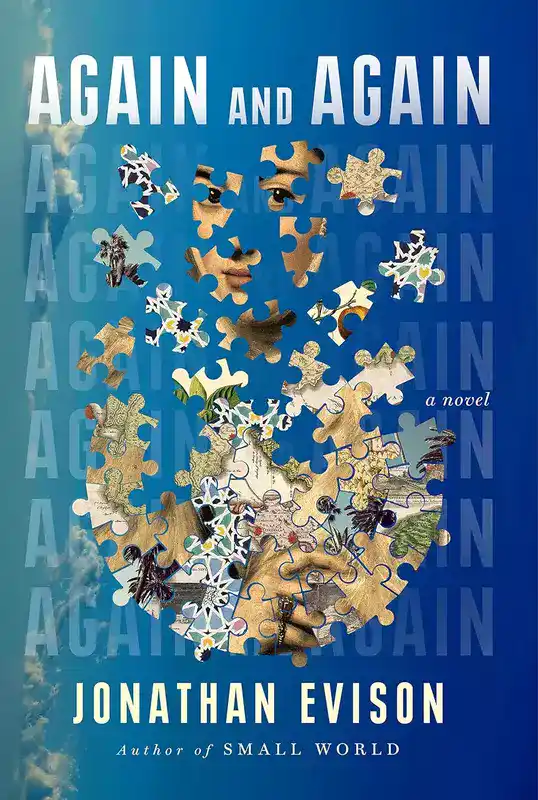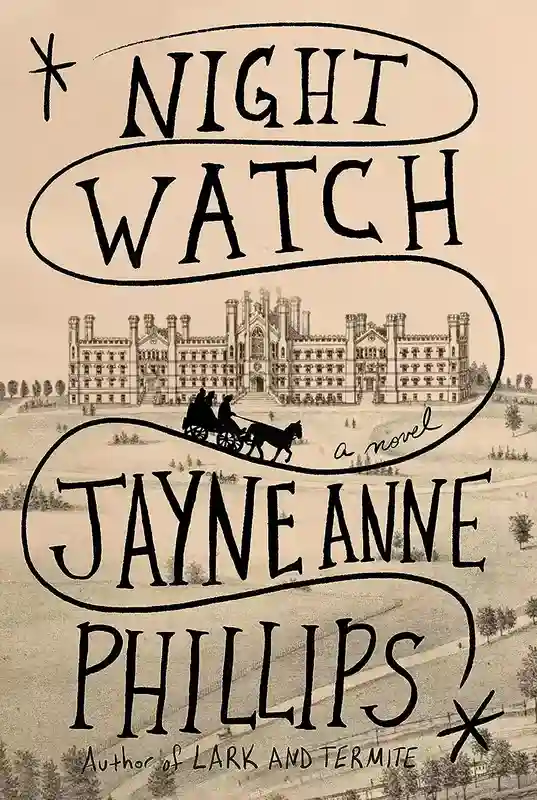This post may contain affiliate links. Read more here.

Book club questions for The Berry Pickers by Amanda Peters explore the themes of love, race, brutality, and the healing power of forgiveness. The delve into the persistent impact of trauma on people and families and shed light on the challenges faced by Indigenous communities, particularly in the context of historical attempts at erasure.
This is a harrowing tale of Indigenous family separation.
Life is never easy and everyone has a different story. Yet, we are all so similar as well. In some ways nothing we do is original or different. We may think we are different, but in the large scheme of things everything that we do or even say has been done by someone else. This novel tells a family story in simple way.
What are your thoughts on this novel? ✨
The Berry Pickers by Amanda Peters
In this blog post you will find the discussion questions for The Berry Pickers by Amanda Peters, while at the bottom of this post I also have some additional suggestions for others novels that explore similar themes.
I hope you’ll enjoy this comprehensive guide and your analysis of the book, as much as you enjoyed reading it!
About the Author | Book Club Questions | Additional Recommendations
About the Story
The Berry Pickers tells the story of a Mi’kmaq family from Nova Scotia who travels to Maine in 1962 to pick blueberries for the summer. The narrative centers around the mysterious disappearance of their four-year-old daughter, Ruthie, from the blueberry fields. The book spans nearly fifty years, exploring the impact of Ruthie’s disappearance on the family and the community.
As the story unfolds, the perspective shifts to a young girl named Norma, growing up as the only child in an affluent family in Maine. Norma grapples with recurring dreams and visions that feel like memories rather than imagination. As she matures, Norma becomes increasingly aware that her parents are keeping secrets from her. The novel follows Norma’s decades-long quest to uncover her family’s hidden truths.
About the Author
Amanda Peters is a Canadian writer from Falmouth, Nova Scotia. She gained recognition for her debut novel, The Berry Pickers, which was a finalist for the 2023 Atwood Gibson Writers’ Trust Fiction Prize and the 2024 Andrew Carnegie Medal for Excellence in Fiction.
Peters is of mixed European and Mi’kmaq heritage and is a member of the Glooscap First Nation. She received an Indigenous Voices Award in 2021 for her debut short story collection Waiting for the Long Night Moon, scheduled to be released in 2024.
Book Club Questions for The Berry Pickers
Disclaimer: the following discussion questions contain spoilers, so proceed with caution if you haven’t finished the book yet.
- Explore Norma’s journey as she learns Mi’kmaq words and reconnects with her long-lost sister, Mae. How does this reconnection impact Norma’s understanding of her past?
- Joe reminisces about the family’s annual trip from Canada to Maine for the blueberry harvest. How does this tradition shape the family dynamics, and how does it contribute to the overall atmosphere of the novel?
- How does the author use the setting of Maine in the 1960s to create a specific atmosphere in the novel?
- Reflect on how Ruthie’s story reflects broader Indigenous tragedies. Has your perspective on Indigenous history evolved since reading the book, and if so, in what ways?
- Share any personal connections you felt to Norma’s sense of being stuck between worlds. In what ways have you, or people you know, experienced a sense of duality or out-of-placeness?
- How did the opening line, “The day Ruthie went missing, the blackflies seemed to be especially hungry,” resonate with you on a personal level? Did it evoke any memories or emotions, and did your initial expectations align with the unfolding story?
- Discuss which narrative voice—Joe’s, Norma’s, or the combination—you found most relatable. Were there other characters whose perspectives you wished to explore? How did these choices impact your understanding of the characters’ journeys?
- Which characters did you find the most compelling or relatable? Why?
- Explore the theme of family in the novel. How does the disappearance of Ruthie affect the Mi’kmaq family and, later, Norma’s affluent family?
- The novel is said to deliver a powerful message about truth, forgiveness, and healing. How are these themes explored through Joe and Norma’s journeys?
- Reflect on Joe’s statement, “I was at the end of my row, waiting for Dad’s truck to come and signal it was quitting time.” How does this moment reveal aspects of Joe’s character and emotions?
- Explore Norma’s journey as she learns Mi’kmaq words and reconnects with her long-lost sister, Mae. How does this reconnection impact Norma’s understanding of her past?
- How does the author incorporate cultural elements, such as Mi’kmaq words and family traditions, into the narrative? Discuss the significance of these elements in the story.
- The novel comes full circle with a message about truth, forgiveness, and healing. How does the conclusion of the story resonate with the themes introduced in the opening scenes?
- Consider the dynamics of family bonds after Ruthie’s disappearance. What elements resonated with your own understanding of family connections, and how did you relate to the strains depicted in the story?
- Share your feelings when you discovered the relationship between the two storylines. How did it affect your connection to the characters and your overall emotional experience with the book?
- If you’re comfortable, reflect on any personal experiences with discovering family secrets. How did it shape your relationships, and did you find similarities between your own experiences and those portrayed in the novel?
- Consider the drastic action taken by Norma’s mother at the end. How did you personally interpret her motivations? Did it spark any reflections on the complexities of familial decisions?
- Are there characters you found easier or more challenging to forgive, and how did this resonate with your own experiences of forgiveness in real life?
- If you were to write a novel inspired by your family history, where would you set it, and what themes might you explore? Share your thoughts on translating personal narratives into fictional stories.
Additional Recommendations
Hope you enjoyed the book club discussion questions and reading guide for The Berry Pickers by Amanda Peters.
Here are some more of my book club recommendations related to this book:
The Unsettled by Ayana Mathis
From the moment Ava Carson and her ten-year-old son, Toussaint, arrive at the Glenn Avenue family shelter in Philadelphia 1985, Ava is already plotting a way out. She is repulsed by the shelter’s squalid conditions: their cockroach-infested room, the barely edible food, and the shifty night security guard. She is determined to rescue her son from the perils and indignities of that place, and to save herself from the complicated past that led them there.
Ava has been estranged from her own mother, Dutchess, since she left her Alabama home as a young woman barely out of her teens. Despite their estrangement and the thousand miles between them, mother and daughter are deeply entwined, but Ava can’t forgive her sharp-tounged, larger than life mother whose intractability and bouts of debilitating despair brought young Ava to the outer reaches of neglect and hunger.
Ava wants to love her son differently, better. But when Toussaint’s father, Cass, reappears, she is swept off course by his charisma, and the intoxicating power of his radical vision to destroy systems of racial injustice and bring about a bold new way of communal living.
Meanwhile, in Alabama, Dutchess struggles to keep Bonaparte, once a beacon of Black freedom and self-determination, in the hands of its last five Black residents—families whose lives have been rooted in this stretch of land for generations—and away from rapidly encroaching white developers. She fights against the erasure of Bonaparte’s venerable history and the loss of the land itself, which she has so arduously preserved as Ava’s inheritance.
As Ava becomes more enmeshed with Cass, Toussaint senses the danger simmering all around him—his well-intentioned but erratic mother; the intense, volatile figure of his father who drives his fledgling Philadelphia community toward ever increasing violence and instability. He begins to dream of Dutchess and Bonaparte, his home and birthright, if only he can find his way there.
Brilliant, explosive, vitally important new work from one of America’s most fiercely talented storytellers.
Again and Again by Jonathan Evison
From one of America’s greatest, most creative novelists comes Again and Again, a poignant and endlessly surprising story about love lost, found, and redeemed
Eugene “Geno” Miles is living out his final days in a nursing home, bored, curmudgeonly, and struggling to connect with his new nursing assistant, Angel, who is understandably skeptical of Geno’s insistence on having lived not just one life but many—all the way back to medieval Spain, where, as a petty thief, he first lucked upon true love only to lose it, and spend the next thousand years trying to recapture it.
Who is Geno? A lonely old man clinging to his delusions and rehearsing his fantasies, or a legitimate anomaly, a thousand-year-old man who continues to search for the love he lost so long ago?
As Angel comes to learn the truth about Geno, so, too, does the reader, and as his miraculous story comes to a head, so does the biggest truth of all: that love—timeless, often elusive—is sometimes right in front of us.
Night Watch by Jayne Anne Phillips
In 1874, in the wake of the War, erasure, trauma, and namelessness haunt civilians and veterans, renegades and wanderers, freedmen and runaways. Twelve-year-old ConaLee, the adult in her family for as long as she can remember, finds herself on a buckboard journey with her mother, Eliza, who hasn’t spoken in more than a year. They arrive at the Trans-Allegheny Lunatic Asylum in West Virginia, delivered to the hospital’s entrance by a war veteran who has forced himself into their world. There, far from family, a beloved neighbor, and the mountain home they knew, they try to reclaim their lives.
The omnipresent vagaries of war and race rise to the surface as we learn their story: their flight to the highest mountain ridges of western Virginia; the disappearance of ConaLee’s father, who left for the War and never returned. Meanwhile, in the asylum, they begin to find a new path. ConaLee pretends to be her mother’s maid; Eliza responds slowly to treatment. They get swept up in the life of the facility—the mysterious man they call the Night Watch; the orphan child called Weed; the fearsome woman who runs the kitchen; the remarkable doctor at the head of the institution.
Epic, enthralling, and meticulously crafted, Night Watch is a stunning chronicle of surviving war and its aftermath.
Happy reading! ❤️



